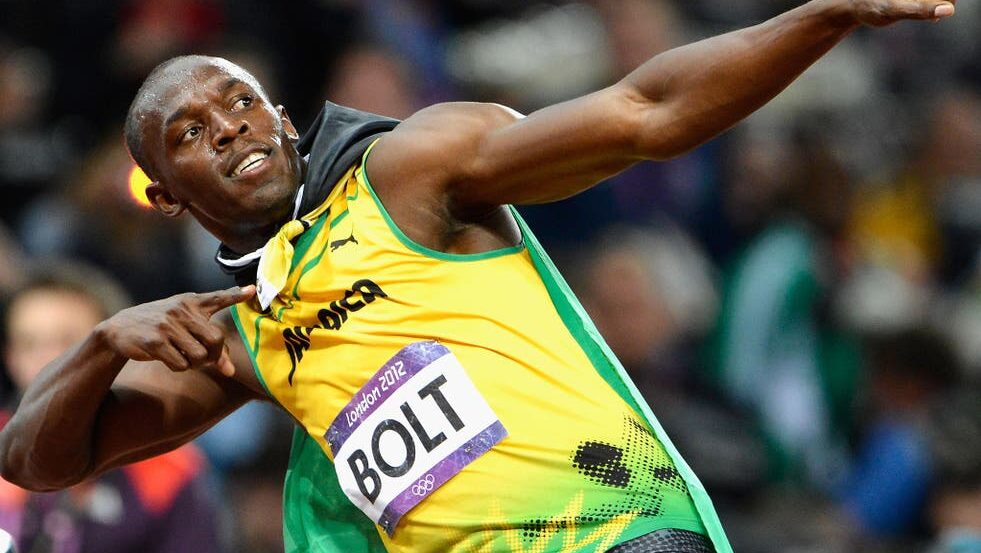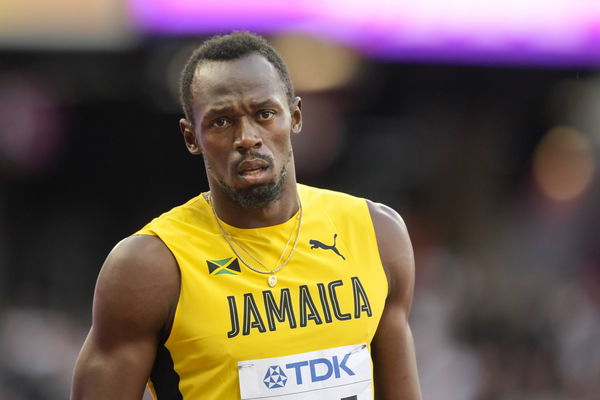

If he wanted, Usain Bolt could have gone about his sprinting career differently. And 2003 could have been the turnaround year for him. In the bloom of youth, he was just 17 at that point; however, the signs of a future legend had started to shine through in him. Interestingly, this was exactly when he made a decisive call regarding his career.
Watch What’s Trending Now!
Bolt had just won the National High School Champs and also added the World Youth title to his resume by clocking a 20.40s 200m time. With these wins, a host of opportunities had laid open in front of him. One of which included moving to the States for better athletic chances. But Usain Bolt was firm on a no. And not one, the teenager’s reasons were multifold. So let’s rewind back to 2003 to know what a younger Bolt thought.
America’s collegiate sprinting culture discouraged Bolt
In Faster than Lightning: My Autobiography, Usain Bolt’s autobiography that was released in 2013, he had touched upon this 2003 incident and how the American college entry system worked for Jamaican athletes. On reading through the book, we found that he had shed a light upon how the junior track and field stars were often approached by different universities in the States, offering them free or subsidized education programs depending on their athletic prowess. However, as he did so, a dark reality surfaced from under the veil.
Usain Bolt had written, “They [American Universities] wanted to be represented by the world’s best up-and-coming athletes, and because Jamaica didn’t have a similar system, or as a wide choice when it came to higher education, a lot of Caribbean athletes jumped at the chance of moving abroad.” But it was Bolt’s longtime business manager, Mr. Peart, who had suggested this would be a good career move. Yet, Bolt had stood his ground with a firm no.
Why so? For one, Usain Bolt had mentioned that he did not want to live away from his mother. For the simple reason that he was a ‘mommy’s boy,’ the growing-up teen refused to consider the idea. On further insisting, Bolt voiced other reasons too. He had justified, “Well, first of all, it’s too cold there. You can get snow and stuff, so forget that.” However, the primary reason that had him shut the door on this opportunity immediately as a budding sportsman was because he dreaded the rough manner in which athletes were treated in America.
And back then, Usain Bolt did not want to complicate his career or thwart his success chances with the risk. Thus, he had to give Mr. Peart a fitting reply. “See, here’s the thing, Mr. Peart,” he said. “I know that if I go to the States, people might never hear of me again; they might burn me out over there. I want to stay in Jamaica.”

Imago
170805 Jamaicas Usain Bolt inför semifinalen pa 100 meter under dag tva av friidrotts-VM den 5 augusti 2017 i London. PUBLICATIONxNOTxINxSWExNORxAUT Copyright: JOELxMARKLUND BB170805JM012
Jamaica Usain Bolt inför semifinals Pa 100 Metres Under Dag TVA AV Friidrotts VM the 5 Augusti 2017 I London Copyright JoelxMarklund BB170805JM012
A young Usain Bolt had also thought that for the sole reason that they had been given a scholarship, the athletes who did shift had to play it by the coaches’ books. Also, they had to tolerate the pressure to keep the college and the sports staff satisfied. And because Jamaicans were exceptional on the track, they were often the ones sent to the forefront by colleges because they wanted to win prizes.
So he knew that shifting to America meant running a demanding schedule for both the indoor and outdoor seasons, which was something his body wouldn’t allow. Interestingly, just 2 years before he made this directional call in his career, Usain Bolt was left sobbing over one of these reasons. Care to venture a guess what had bothered a 15-year-old Bolt to the edge of heartbreak back then?
Bolt is the ultimate mommy’s boy
Usain Bolt was 15 when he flew to Barbados for the CARIFTA, a junior-level competition that actually held quite a bit of weight in Jamaican track and field. Thus, the stakes were high, and Bolt had to unleash the extraordinary in him. And everything was going well for the legend until he just couldn’t bear being distanced from his mother anymore.
Bolt wrote in his autobiography that “It was all adventure. Flying to Barbados was the first time I had left Jamaica, and, for a while, it felt like a holiday. Then I got homesick and started to miss Mom.” Things suddenly took an intense turn when the separation became unbearable for him. “One night, as I tried to sleep, I even began crying because I wanted to go home.”
And that was reflected in his performance too, as he had to make do with two silver medals in the events he partook in. Looking at this, his call to stay in Jamaica seemed wise.

